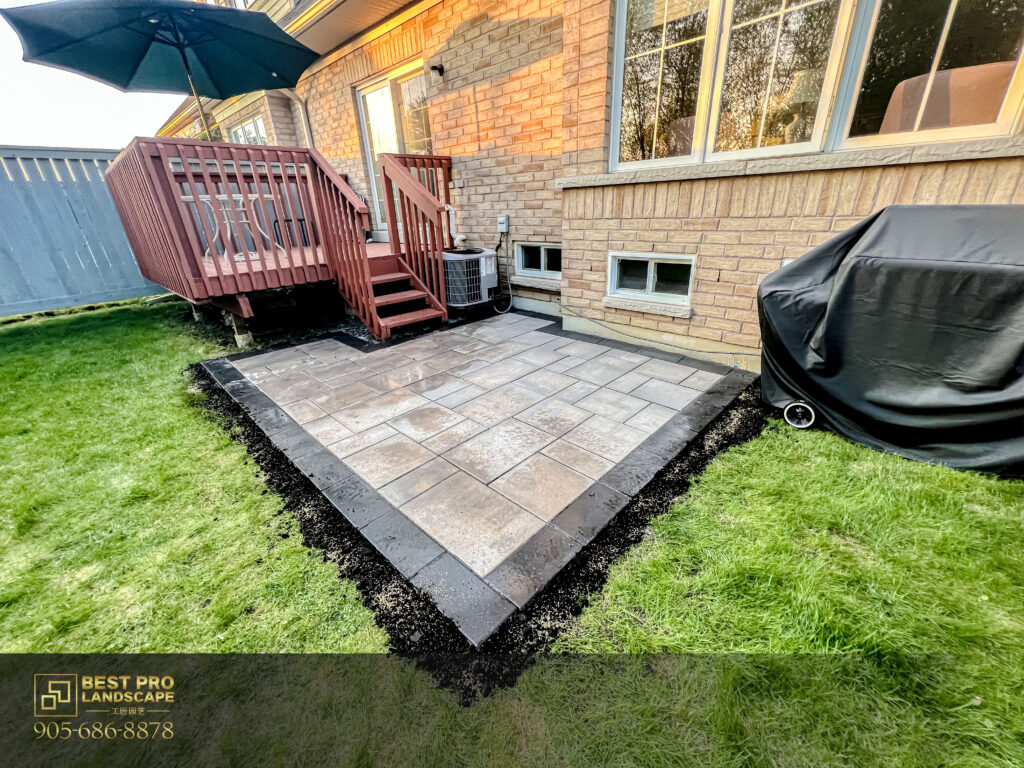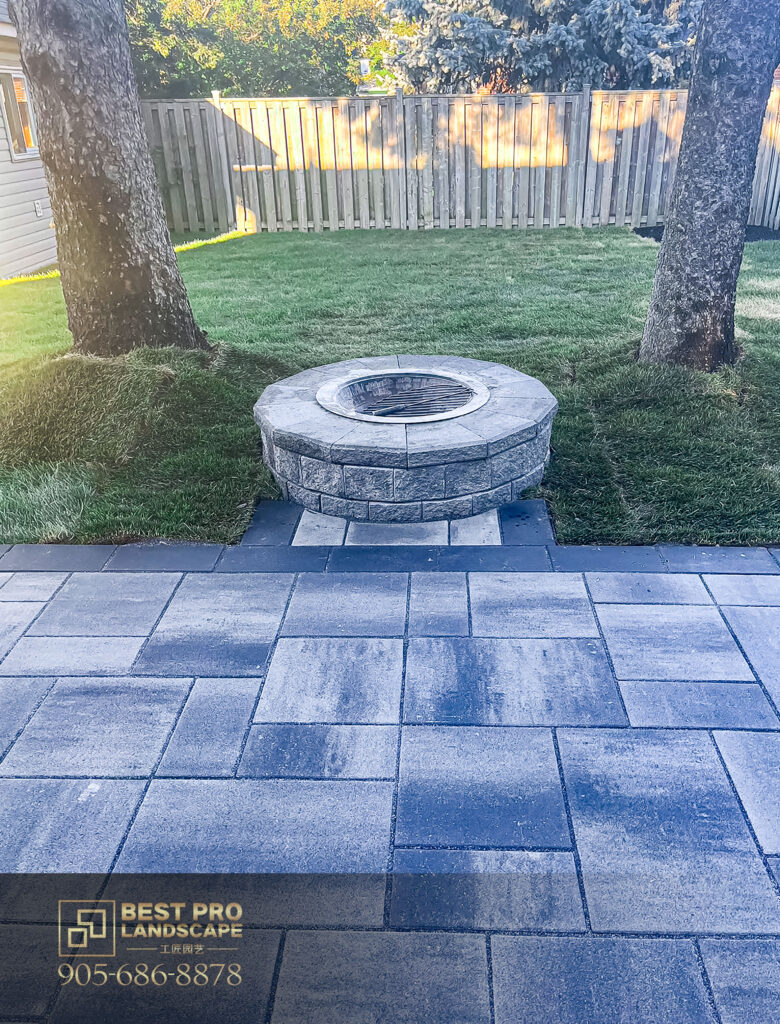How to Maintain Your Interlock Pathway, Patio or Driveway
Maintaining your interlock pathway, patio, or driveway is crucial for preserving its beauty and functionality over time. Here is an in-depth guide covering various aspects of maintenance, from regular cleaning to contacting professionals for complex tasks.

Sealant Application:
Applying a sealant to your interlock surface is an important step in its maintenance. Sealants protect the pavers from stains, water damage, UV rays, and general wear and tear. They also enhance the color and appearance of the pavers, giving them a fresh and vibrant look.
Regular Cleaning:
Regular cleaning is the cornerstone of interlock maintenance. Sweep or rinse the surface frequently to remove dirt, leaves, and debris that can accumulate over time. This simple step prevents these elements from settling between the pavers, which can lead to weed growth and staining. A regular cleaning routine not only keeps your interlock surface looking neat but also helps in identifying any potential issues early on.
Weed Control:
Weeds can quickly become a nuisance if left unchecked in interlock pathways, patios, or driveways. Regularly inspect the area for any signs of weed growth and remove them promptly. Pulling out weeds by hand or using a suitable chemical solution can help prevent them from spreading and causing damage to the interlocking pavers. Effective weed control ensures that your interlock surface remains tidy and free from unwanted vegetation.
Proper Drainage:
Proper drainage is crucial for the long-term health of your interlock surface. Ensure that the area has adequate drainage to prevent water from pooling or stagnating on the surface. Poor drainage can lead to erosion, water damage, and the growth of mold or mildew between the pavers. Installing drainage solutions such as gravel-filled gaps or perforated pipes can help redirect excess water away from the interlock surface, preserving its stability and appearance.
Avoid Heavy Loads and Sharp Objects:
To prevent unnecessary damage to your interlock pathway, patio, or driveway, avoid placing heavy objects directly on the surface. Heavy loads can cause the pavers to shift or crack, especially if the underlying base is not properly compacted. Similarly, avoid dragging sharp or abrasive objects across the interlock surface, as this can scratch or chip the pavers. Use caution when moving furniture, vehicles, or other heavy items to minimize the risk of damage.
Repair Cracks and Chips:
Over time, interlocking pavers may develop cracks or chips due to various factors such as heavy use, freeze-thaw cycles, or natural wear and tear. It’s essential to address these issues promptly to prevent further damage and maintain the structural integrity of the surface. Depending on the severity of the damage, repairs may involve filling in cracks with suitable materials or replacing damaged pavers altogether. Regular inspections and proactive repair work can extend the lifespan of your interlock pathway, patio, or driveway.
Power Wash the Interlocked Area:
Periodic power washing is an effective way to deep clean your interlock surface and remove stubborn dirt, stains, or algae buildup. Use a pressure washer with a suitable nozzle and mild detergent to avoid damaging the pavers or joint sand. Power washing can rejuvenate the appearance of your interlock pathway, patio, or driveway, making it look fresh and well-maintained. However, it’s essential to use this method judiciously and not overdo it, as excessive pressure or harsh chemicals can cause unintended damage.
Contact Professionals
Contact Professionals
While many maintenance tasks can be handled independently, there are instances where professional assistance is warranted. For complex repairs, intricate design modifications, or specialized maintenance procedures, consider hiring professionals with expertise in interlocking surfaces. Professional contractors can assess the condition of your interlock pathway, patio, or driveway and recommend appropriate solutions tailored to your specific needs. Their knowledge and experience can ensure that maintenance tasks are carried out effectively and efficiently, minimizing potential risks and ensuring long-term durability.

In conclusion, maintaining your interlock pathway, patio, or driveway requires a combination of regular upkeep, proactive repairs, and occasional professional intervention. By following these guidelines and staying vigilant about the condition of your interlock surface, you can enjoy a beautiful, safe, and durable outdoor space for years to come.
